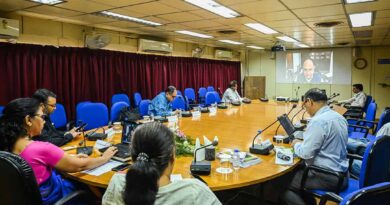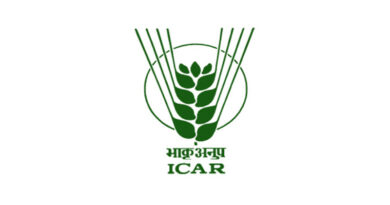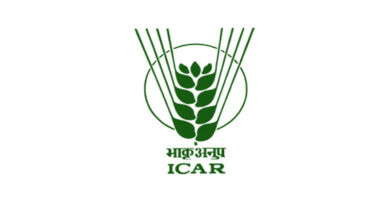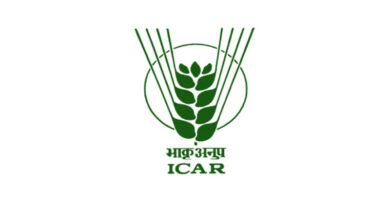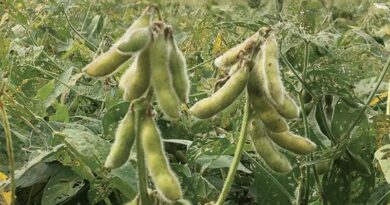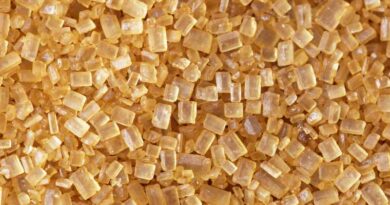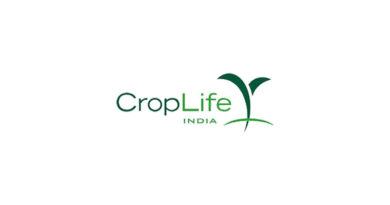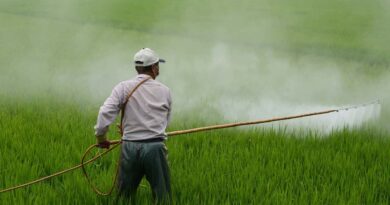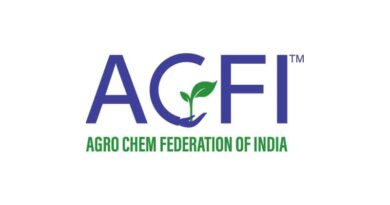51st Annual Meeting of the All India Co-ordinated Soybean Research Project conducted by the Indian Institute of Soybean Research, Indore State news
12 March 2021, New Delhi: ICAR-Indian Institute of Soybean Research organized an annual group meeting workshop on 12th and 13th March 2021using Zoom App through virtual-on-line mode with the participation of more than 150 scientists belonging to different centers associated with the All India Coordinated Soybean Research Project on Soybean (AICRPS). The workshop was inaugurated in the august presence of Dr TR Sharma, Hon’ble Deputy Director General (Crop Science); Dr Sanjeev Gupta, Assistant Director General (Oilseeds and Pulses); Dr DK Yadav, Assistant Director General (Seeds), top experts as well as policymakers associated with research programs like Dr Hanchinal (Former Chairman, Plant Protection Variety and Farmers’ Right Act), Dr Satya Prakash Tiwari (Former Vice-Chancellor, Swami Kesavananda University of Agriculture and Technology, Bikaner), and Dr Nita Khandekar, Acting Director of the institute along with Head of different departments Dr SD Billore, Dr Sanjay Gupta, Dr M.P. Sharma, Principal Investigators and all the scientists of ICAR-IISR, Indore as well as coordinating centers.
At the outset, Dr Nita Khandekar presented a brief report on achievements in research/technology programs undertaken on soybean during the year 2020 by the different coordinating centers of All India Integrated Soybean Research Project across the country. In order to attain self sufficiency in vegetable oil production, she emphasized on horizontal expansion of soybean crop in non-traditional areas like Punjab, Haryana etc. In addition, inter-cropping of soybean with sugarcane and other suitable companion crop would also increase the soybean production. Dr Khandekar also invited the AICRPS scientists to strengthen their efforts for off-season multiplication of soybean seed for increasing the Seed Replacement Ratio.
Hon’ble Deputy Director-General of the Indian Council of Agricultural Research, Dr TR Sharma in his inaugural address emphasized promoting diversity of soybean varieties as well as climate-resilient, high-yielding soybean varieties among the farmers of different soybean-growing states. He also emphasized the use of molecular tools like Pre-breeding, Marker Assisted Selection, Genome-Wide Association Studies for fastening the process of varietal development in the shortest possible time. On this occasion, Dr Sanjeev Gupta highlighted the current status of the soybean seed replacement rate which is relatively low as compared to other crops, and the need for the popularization of location-specific new varieties.
During the technical session organized on the breeding of soybean for the development of varieties with specific traits and high yielding varieties, the Chairman of the session, Hon’ble Dr S.P.Tiwari (Former Vice-Chancellor, University of Agriculture, Bikaner and former Deputy Director-General, Education and Crop Sciences, Indian Council of Agricultural Research, New Delhi), expressed satisfaction over the work carried out by the ICAR-IISR regarding the development of food-grade specialty soybean varieties, conservation and evaluation of germplasm as well National Hybridization Program on Soybean which may bear fruits in the coming years.
Dr Hanchinal (Former Chairman, Plant Protection Variety and Farmers Right Act) stated that to break the yield stability in soybean, the research work using Induced Mutation Breeding in collaboration with Bhabha Atomic Research Center is to be taken up.
A brief report on the various research trials conducted during the year 2020 by AICRPS centers across the country was presented by Dr Sanjay Gupta, Head, Crop Improvement Department of the Indian Institute of Soybean Research, along with a technical program for the year 2021 was finalize and approved by the house.
The major recommendations from different technical sessions are. 1. Increased use of wild soybean genotype (Glycine soja) for imparting resistance to insect-pest and diseases in the process of development of new soybean varieties. 2. Screening of soybean genotypes for resistance viz. in case of antixenosis, traits related to its resistance for the inclusion of resistance against biotic factors in new varieties of soybean. 3. To increase the average productivity, the row spacing of 45X10 cm should be promoted and popularized. 4. Combined application of Bacillus polymixa and AMF is recommended which may reduce the recommended nutrient dose by 25%. 5. Standard indices should be formulated for soy-food products which may be useful for popularizing the domestic consumption of soybean.
The committee constituted for the screening of proposals for identification of new soybean varieties approved a total of 7 new soybean varieties suitable for different regions of the country, out of which 4 varieties were recommended for the central zone i.e. RVSM 2011-35 (average productivity – 2200 kg/ha with resistance against stem fly, girdle beetle and defoliating insects), NRC 142 (specialty soybean variety suitable for food uses and First Indian Soybean Variety free from lipoxygenase-2 and Kunitz Trypsin Inhibitor), NRC 138 (short duration (95 days) with average productivity of 1789 kg/ha); AMS 100-39 (Average productivity of 2087 kg/ha). Similarly, for the Southern Zone, bold seeded soybean variety KDS-992 (average productivity – 2658 kg/ha), MACSNRC-1667 (KTI free soybean variety with average productivity of 2051 kg/ha); Karune as First Indian Vegetable type soybean variety for green pod consumption and NRC 142.
The annual group meeting came was concluded with a vote of thanks proposed by the Director of the institute, Dr Nita Khandekar.


